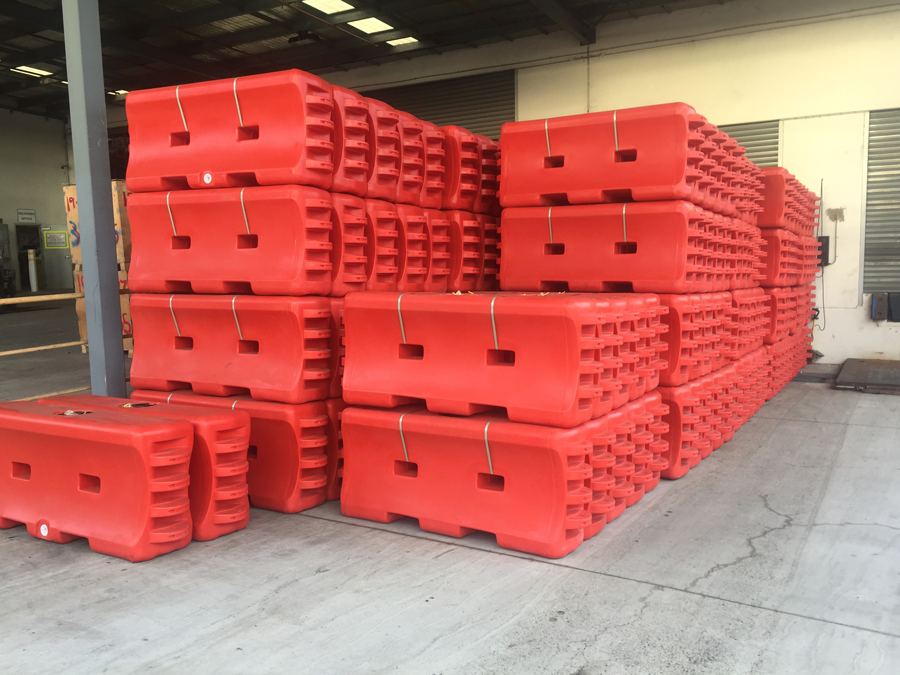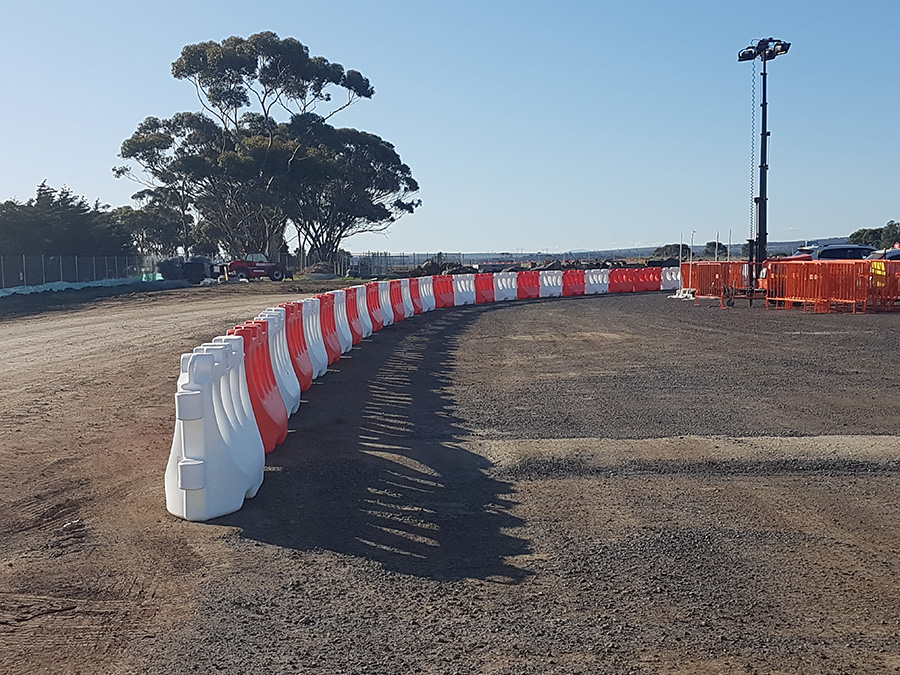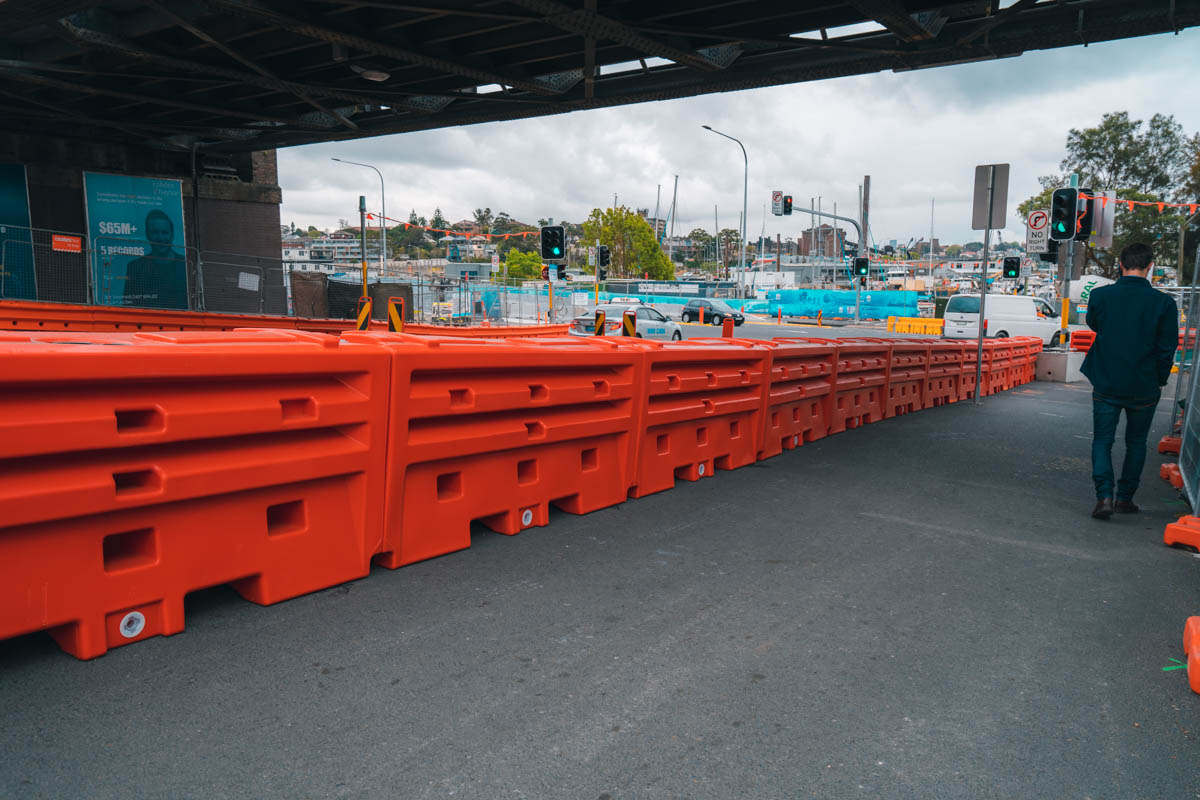How to choose the Best Water Filled Barriers for Roadworks

How to choose the safest barriers for road repair and resurfacing jobs
Water filled barriers are ideal for contractors working on local and council roads, but they do have some limitations. Here are a few things to look for when choosing water barriers for your next road work project.
Know the MASH rating that you need
Choosing a water filled barrier ultimately comes down to the posted speed limit on the road you’re working on. All water filled barriers used on Australian roads need to have a MASH rating to ensure that in the event of an accident or impact from a vehicle, the barrier will actually perform as expected.
MASH testing is a rigorous process that ensures the movement and behaviour of the barriers under stress is within certain limits. Depending on the performance of the barrier in a full-scale test, it is given a MASH rating that corresponds to a particular max speed limit.
A MASH TL-2 Rated barrier for example - can be used in areas with a posted speed limit of up to 70km/hr.
 Would a pedestrian barrier suffice?
Would a pedestrian barrier suffice?
However, if you are working on resurfacing car park asphalt, sports field driveways, or other roads on private land, it’s likely that the speed limit will be much lower and a water filled pedestrian barrier would suffice.
Water filled barriers can be used for creating a walkway along a worksite for example, and a barrier such as the Trafix 2000 provides strong and reliable work site protection.
Barriers that are referred to as ‘pedestrian’ means that they are generally not crash rated and suitable for quite low speed limits only.
Would a concrete barrier be a better choice?
In some cases, water filled barriers are not going to be up to the task of protecting road work crews.
In particularly dangerous areas or black spots, on roads that carry many trucks and heavy vehicles or roads with speed limits over 70km/hr, concrete jersey barriers are often the best and safest choice.
Jersey barriers are very tough, rugged, and can withstand impacts from vehicles travelling at over 100km/hr, so if your project is in a higher speed area, you may need a concrete road barrier.
These solid precast concrete barriers can reduce the risk of high speed collisions as a result of an out of control vehicle impacting the barrier. They are tested and approved for main roads an
 Consider the size, installation and dismantling
Consider the size, installation and dismantling
Most water filled barriers are designed to be easy to deploy on site, as they are quite light when empty but very heavy once filled with water. Moving the barriers into place is quite easy with most empty barriers weighing around 40 - 50kg.
Once in place, they can be filled from a water cart or with a large hose; many barriers taking around 500 litres of water in each module.
It’s important when considering which waterfilled barrier is best for your road work project, to check access for a water cart to fill them.
If you can’t manoeuvre a water truck close to the barriers it will be difficult to fill them quickly. In limited access areas, sometimes different barries are a better choice.
Size plays a part too - most water barriers are roughly the same size, measuring around two metres long. If you need to install your barriers around very tight curves, this may have a bearing on which barrier you choose to buy.
Some water barriers are designed with knuckle joints or pins between each module that allow them to pivot around curves, however, some are better than others when it comes to tight corners.
Check the specifications of your water filled barrier to see if it allows for tight curves. This will ensure that you can link all the modules together on your specific project, creating a safer barrier fence.
How to choose the right water filled barrier
There are lots of different shapes and sizes of water filled barriers. However, as you might expect, all Australian road authorities have slightly different requirements and regulations around which water barriers can be used on roads.
If you need assistance with choosing the right water filled barrier that will keep your team safe and keep the local regulators happy, give Jaybro’s barrier team a call for help and advice.
 Sign In
Sign In 

